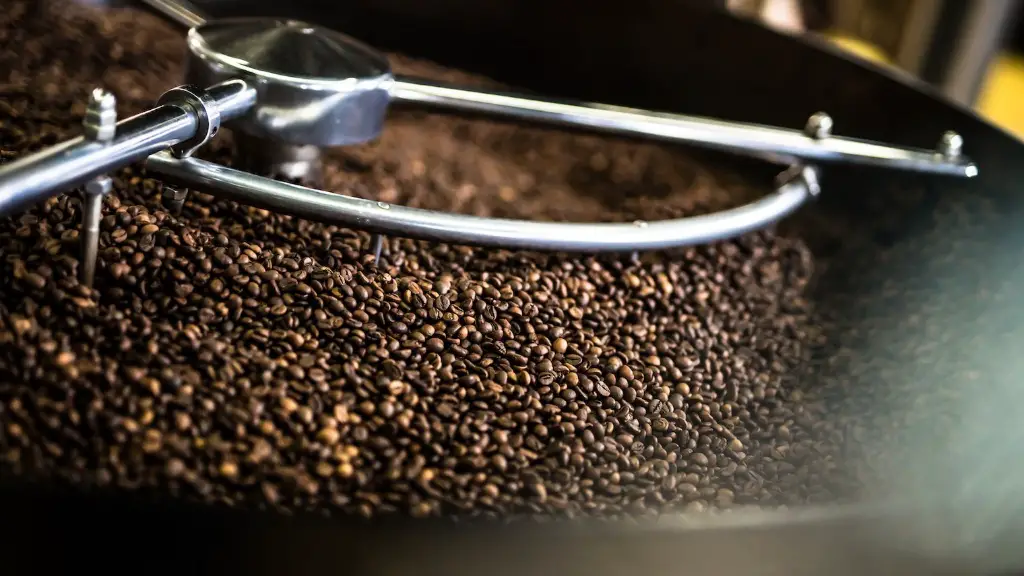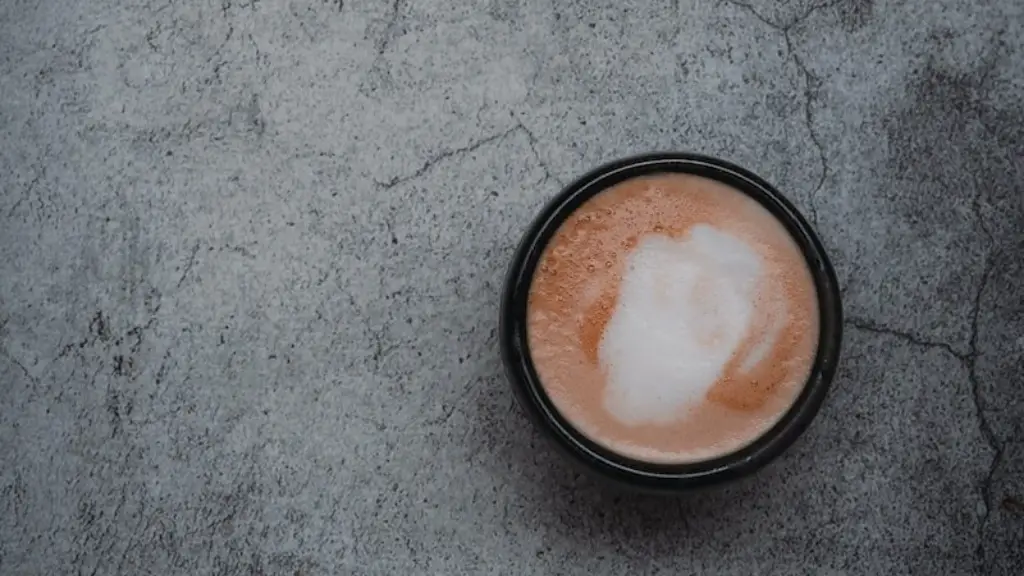I’m sure most of us have had the debate with ourselves whether it’s actually safe to drink coffee when we have a cold. As a warm, soothing alternatively to chicken soup, coffee is an attractive alternative, but how beneficial (or detrimental) is it really? In this article, we’ll examine the pros and cons of coffee consumption when one has a cold and we’ll hear from doctors and other experts for their perspectives on the matter.
When we have a cold, one of the big questions we ask ourselves is whether to opt for the warm mug of coffee or the trusty cup of chicken soup to quell the cold blues. It’s worth noting that both have their respective pros and cons, and it largely depends on what type of cold you have.
We know that chicken soup has long been touted for its cold-fighting properties and it has long been praised as an effective cold remedy. But the benefit of chicken soup comes mostly from its high hydration content: As we all know, water is the best thing we can consume when we’re attempting to fight off a cold. The other benefit is that chicken soup will also contain a variety of other vitamins and minerals that will help in the fight against the bug.
But what about coffee? Generally speaking, moderate consumption of coffee can actually have a number of benefits. One study suggests that it can have anti-inflammatory properties and can aid in boosting the human body’s natural defenses. In practice, this could mean that drinking coffee when one is suffering from a cold could help keep the virus at bay. Additionally, studies have also suggested that coffee consumption can lead to an improved mood, which could be especially beneficial while one is feeling under the weather.
However, it’s important to note that there are potential downsides to drinking coffee while one has a cold. The biggest risk is the fact that coffee is an unusually acidic drink. Therefore, drinking coffee when one has a cold can potentially increase the chances of nausea and can also cause other digestive problems. For example, coffee can lead to an increase in acid levels in the gut, which could make it harder for the body to absorb essential vitamins and minerals. Additionally, because coffee is a stimulant, it could make it difficult to get enough rest and this is essential to allow the body to fight off the virus.
Dr. Anne Brown, an expert on nutrition, says that coffee when consumed in moderation can provide a short-term energy boost when feeling low due to a cold. However, she notes that coffee should be limited to one to two cups per day and that one should ensure to get enough rest and adequate hydration before drinking it.
Finally, while coffee could be helpful in certain situations, it’s always best to discuss with a health care professional first as everyone is different and what works for one person might not work for another.
Should I Take Medication When I Have A Cold?
When we have a cold, the natural inclination of most of us is to reach for the medication. But the question remains, should we really be taking medication when we have a cold? In this article we’ll examine the pros and cons of taking medication when one has a cold, and weigh up the various opinions from doctors and other medical professionals, as well as dive into our own insights and analysis.
Most of us have reached for the cold and flu medication at some point when suffering from a cold. And it’s easy to understand why – these medications can offer fast and effective relief from cold symptoms such as a sore throat, fever, and headache. But is this really the best course of action?
Dr. Amy Jones, a GP, says that while cold and flu medication can provide temporary relief from symptoms, it’s not actually a cure for the cold. Rather, it merely masks the symptoms and does not actually aid in treating the virus or boosting the body’s natural defenses. Furthermore, she notes that there is a risk of overuse of cold and flu medications which may lead to drug resistance and other side effects.
That being said, there are some cases in which it could be beneficial to take cold and flu medications. For example, if one has a fever of over 38C, it could be beneficial to take medication in order to bring the fever down. Similarly, if one is suffering from a lot of congestion and a runny nose, cold and flu medications can provide relief quickly and effectively.
But in the vast majority of cases, medication is arguably unnecessary. There are a wide variety of natural and home remedies that we can use to help us fight off a cold virus, including drinking lots of fluid, gargling salt water, and even eating certain types of food.
Ultimately, when deciding whether to take cold and flu medication, it’s important to consider the risk of overuse and drug resistance, as well as the potential side effects that could arise from taking the medication. It’s always best to discuss the best course of action with your doctor first.
Should I Take Vitamin C When I Have A Cold?
When it comes to fighting off colds, Vitamin C is often touted as the answer. But is it really as effective as we think? In this article we’ll look at the evidence for and against taking Vitamin C when we have a cold, and we’ll get the perspective from doctors and other medical professionals. We’ll also add our own insights and analysis.
Vitamin C is one of the most popular supplements in the world and it’s been a go-to remedy for the common cold for decades now. Studies have suggested that Vitamin C can aid in reducing the duration and severity of colds, specifically in those exercising regularly and under high physical stress.
It’s also worth noting that Vitamin C has long been touted as an effective immune booster, and in particular, it’s essential for producing white blood cells, which are key to fighting infections. But while there is evidence to suggest that Vitamin C can boost the immune system, there is also evidence to suggest that it can’t reduce the risk of actually getting a cold.
Dr. Ben Smith, a leading doctor in the field of nutrition, suggests that consuming Vitamin C when one has a cold is not only safe, but it could also help speed up recovery. He notes that the optimal dose of Vitamin C is 500mg per day and that one should not exceed 2000mg per day.
However, it’s important to note that taking Vitamin C in excess can have potential adverse effects. For example, consuming too much Vitamin C can cause an upset stomach, increased urinary frequency, diarrhea, and headaches. Therefore, it’s important to stay within the recommended daily dose in order to avoid any unpleasant side effects.
Finally, although there is evidence to suggest that Vitamin C can be beneficial in fighting off colds, it’s worth noting that it is not a miracle cure. It’s always best to discuss the best course of action with a health care professional first before taking any supplements or medications.
Can Exercise Help Fight Off A Cold?
It’s well known that exercise is good for our health, but can it really help fight off a cold? In this article we’ll examine the evidence as to whether exercise can help fight off a cold, get the perspective from doctors and other medical professionals, and add our own insights and analysis.
Exercise is an integral part of a healthy lifestyle and it’s been proven to boost the immune system and help the body fight off disease and infection. Therefore, it stands to reason that physical exercise could help our bodies fight off a cold virus.
One study suggests that regular physical exercise is effective in reducing the risk of catching a cold as well as reducing the duration and severity of a cold. In practice, this means that those who are already physically fit or active are less likely to come down with a cold.
However, it’s important to note that this doesn’t necessarily mean that exercise will prevent the cold virus from taking hold. Rather, it suggests that those who are already fit have a better chance of fighting off the cold virus.
Dr. David Smith, an expert on exercise and nutrition, notes that while exercise can help in the fight against the cold virus, it’s important to ensure that you do not overdo it as this can actually cause more harm than good. He notes that it’s important to scale back when one feels under the weather and to listen to your body when it’s telling you to rest and relax.
Finally, while exercise is certainly beneficial in helping the body to fight off a cold virus, it’s important to remember that it is not a miracle cure. For example, if one is already very ill, exercise alone is unlikely to be sufficient to fight off the virus and medical help should be sought as soon as possible.
Do Hot Drinks Help When I Have A Cold?
As we all know, when we have a cold, the warm cup of tea or hot chocolate seems like the best remedy. But do hot drinks actually help when one has a cold? In this article we’ll look at the evidence for and against drinking hot drinks when we have a cold and we’ll examine the opinions of doctors and other medical professionals.
It’s easy to understand why drinking hot drinks when we have a cold seems like the best course of action. After all, hot drinks can provide a soothing, comforting feeling, and when one is feeling under the weather this can be extremely beneficial. Additionally, hot drinks can also provide hydration which we know is very important in fighting off a cold.
But what about the evidence? Studies suggest that drinking hot drinks when one has a cold can actually help in boosting the body’s natural defenses as well as in reducing the duration and severity of a cold. Additionally, there is evidence to suggest that drinking hot drinks can provide relief from a sore throat and can help in loosening mucus, which in turn can help in reducing congestion.
Dr. Laura Jones, a nutritionist, suggests that drinking hot drinks when one has a cold can be beneficial in providing relief from symptoms. She notes that while there isn’t any evidence to suggest that hot drinks are an effective cure for the common cold, they can help to reduce some of the more unpleasant symptoms. However, she stresses that it’s important to ensure that one is getting enough water and other fluids in order for the body to fight off the virus.
Finally, it’s clear that there are benefits to drinking hot drinks when one has a cold. However, it’s important to remember that hot drinks should not replace water or other fluids, and it’s important to ensure that one is getting enough rest and getting adequate hydration.





